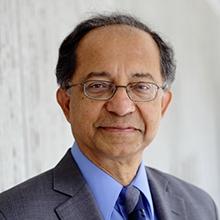You are here
Can the global economy avoid a lost decade?
May 04,2023 - Last updated at May 04,2023
NEW YORK — The Spring Meetings of the World Bank and International Monetary Fund usually provide a platform for various organisations, policymakers, and commentators to reflect on the state of the global economy, offer assessments of the previous year’s developments, and forecast what lies ahead. This year’s meetings, which took place in Washington in April, were accompanied by grim predictions that underscored the growing likelihood of a prolonged global recession.
While many analysts previously assumed that the confluence of crises that the world has faced over the past three years, the COVID-19 pandemic, supply-chain disruptions, the war in Ukraine and the resulting inflation crisis and financial turmoil, would have a significant but ultimately transitory effect on the global economy, new data suggest that the current economic upheaval will last longer than initially expected.
The IMF’s World Economic Outlook and Global Financial Stability Report suggest a difficult road ahead, warning that “the fog around the world economic outlook has thickened”. The rapid succession of large interest-rate hikes by the US Federal Reserve and other major central banks has caused public and private sector debts to increase to their highest levels in decades, enhancing the risk of financial instability. The world’s advanced economies, which grew by 2.7 per cent in 2022, are projected to grow by just 1.3 per cent this year. While the IMF expects Asia’s emerging and developing economies to expand by 5.3 per cent in 2023 (compared to 4.4 per cent last year), India’s growth forecast has been revised down to 5.9 per cent (compared to a 6.8 per cent growth rate in 2022).
A new book by the World Bank is even more pessimistic, warning that the global economy could be on the brink of a “lost decade”. Based on a comprehensive database of estimates of potential growth covering 173 countries, the authors project that annual global growth will fall to a three-decade low of 2.2 per cent and remain weak for the rest of the decade. While the wealthy may have the means to weather the storm, the same cannot be said for the world’s poor and lower-middle classes, who will be hit hardest by the coming downturn.
To comprehend the full ramifications of the current moment, we must look beyond the immediate consequences of COVID-19 and the war in Ukraine and confront underlying issues that have been festering for decades, including climate change and the social and political disruptions caused by rapid technological innovation. Navigating our way out of today’s “polycrisis” and restoring global growth, though possible, will be extremely challenging for two key reasons.
First, as the World Bank report highlights, many countries are experiencing an alarming trend of declining investment. While fiscal and monetary policies certainly play a role, I believe that the root cause of weak investment is the increasing politicisation of economic policy, which has fueled a widespread loss of trust in governments and undermined confidence in their ability to solve the problems that matter.
India is a case in point. Since 2012, private-sector investment as a share of Indian GDP has steadily declined. The World Bank and other experts attribute this trend to political polarisation and a growing lack of trust. While public investment has increased dramatically over the past decade, this can be a dangerous trend: When the government has disproportionate control over investment, it often leads to a surge in cronyism. Russia, where an oligarchy rapidly emerged by currying favours with political leaders in exchange for lucrative contracts and sweetheart privatisation deals, offers a stark example.
The second challenge is that introducing any corrective policy would require a concerted, multi-country effort. The interconnectedness of global supply chains means that any disruption has widespread and powerful knock-on effects, and the growing use of economic sabotage as a war tactic underscores the urgency of multilateral cooperation on a treaty promoting the protection of economic assets.
Achieving a prosperous, peaceful world also requires stepping up efforts to meet climate goals and stem the increase in economic inequality within and between countries. Owing to advances in digital technology and the globalisation of supply chains, such challenges are beyond the reach of individual countries acting alone. To address these global issues, governments must coordinate their monetary, fiscal, and security policies. To be sure, this will not be easy. But the alternative, a future of sluggish growth, political instability, and environmental catastrophe — is simply too dire to contemplate.
Kaushik Basu, a former chief economist of the World Bank and chief economic adviser to the Government of India, is professor of Economics at Cornell University and a non-resident senior fellow at the Brookings Institution. Copyright: Project Syndicate, 2023. www.project-syndicate.org













